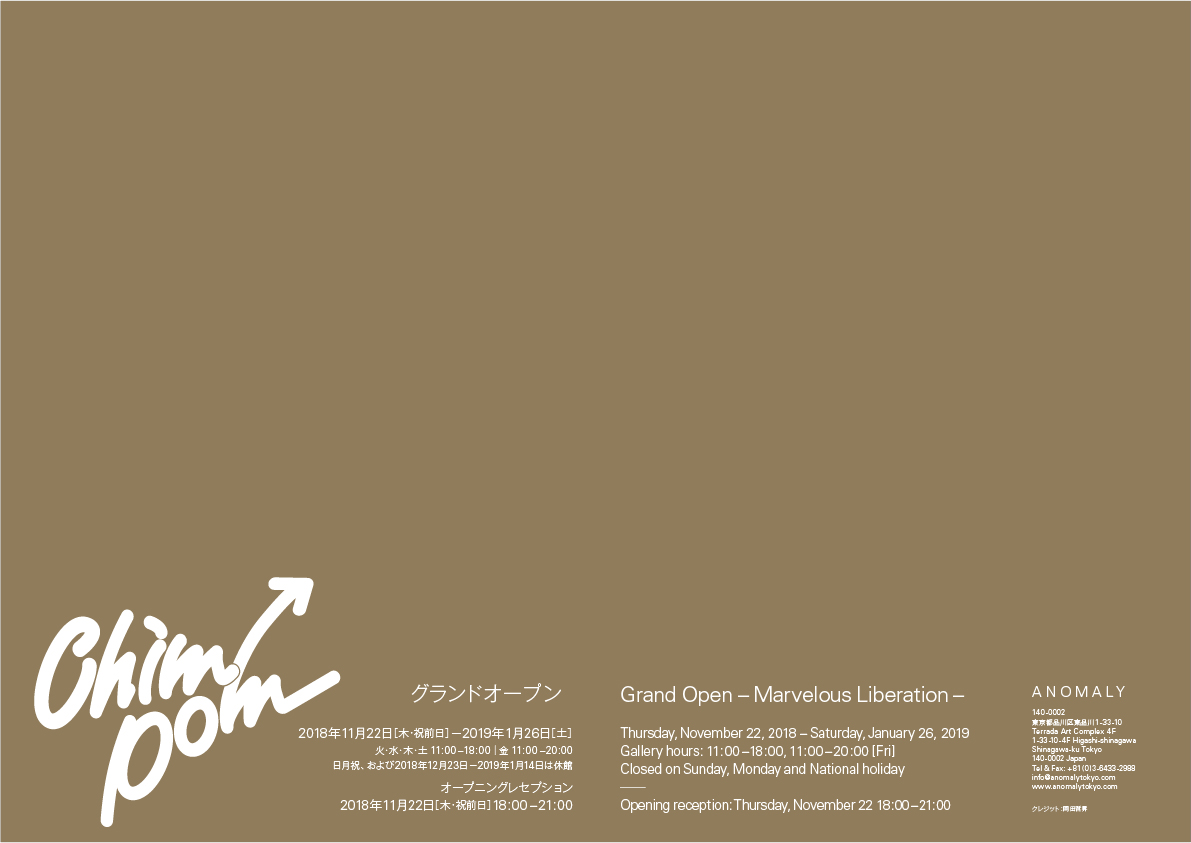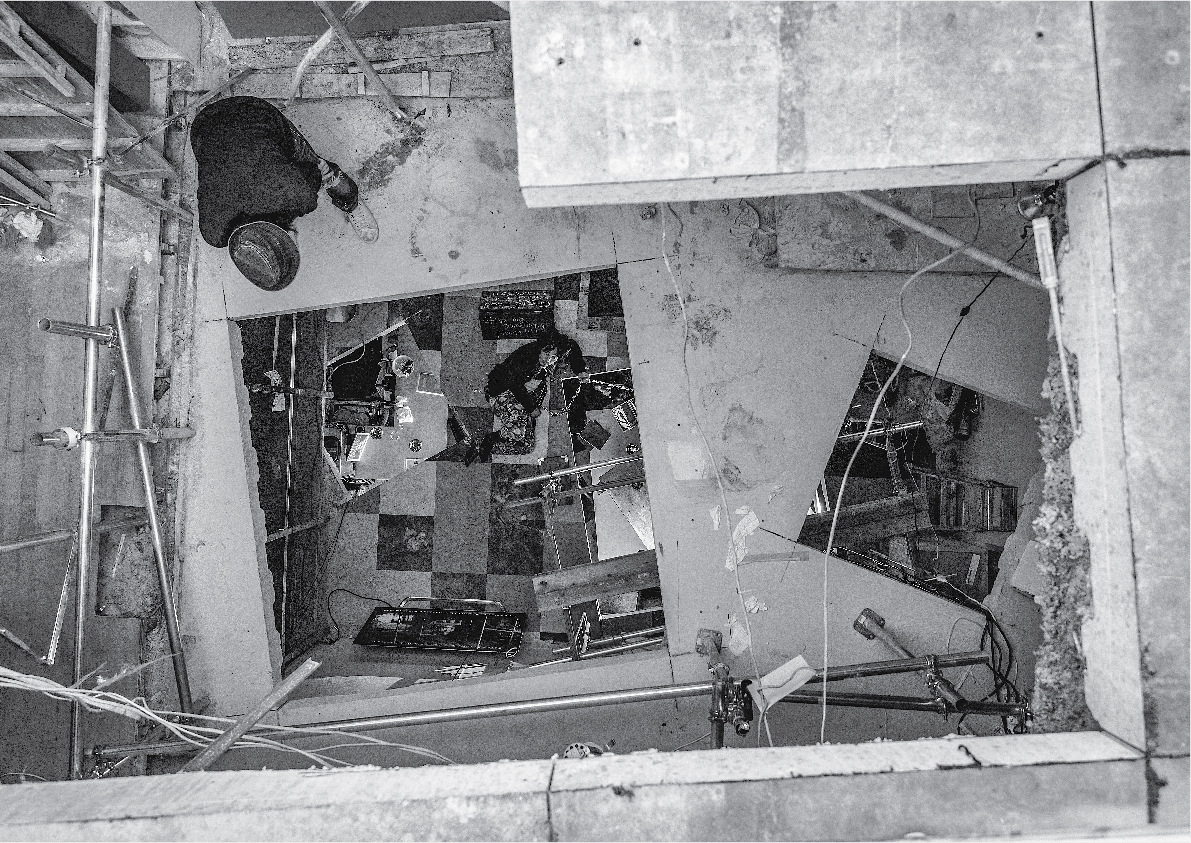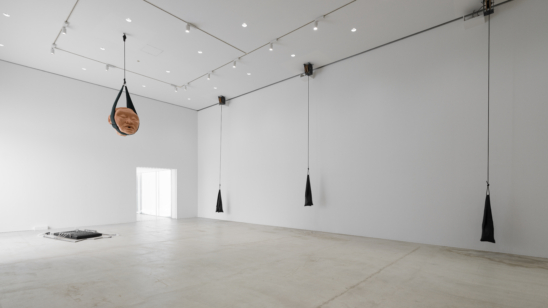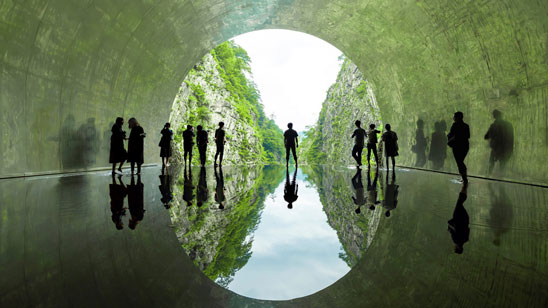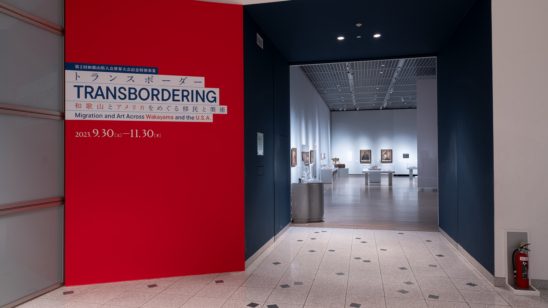Chim↑Pom | Grand Open
ANOMALY is delighted to present a solo exhibition “Grand Open” – Marvelous Liberation –, featuring artworks by the artist collective Chim↑Pom from November 22, 2018 to January 26, 2019.
As the title suggests, “Grand Open” is an inaugural exhibition to celebrate ANOMALY’s grand opening.
Chim↑Pom was formed in Tokyo in 2005 by the six artists Ryuta Ushiro, Yasutaka Hayashi, Ellie, Masataka Okada, Motomu Inaoka, and Toshinori Mizuno. Ever since its debut, the collective has been continuously creating works that expose, with absolutely no compunctions, the hidden contradictions in relations between society and the individual, borders, and other facets of life today, in both provocative and anomalous ways.
They held solo exhibitions at MoMA PS1 in 2011, Parco Museum in Shibuya in 2012, Saatchi Gallery in 2015, and Dallas Contemporary in 2017. They also have been invited to participate in many international biennials, including Sao Paulo Biennial and Shanghai Biennale in 2012, and Lyon Biennale and Asian Art Biennial in 2017. While remaining based in the bizarre Kitakore Building in Tokyo’s Koenji district, the members are engaged in diverse activities of their own planning in a wide range of locations, from Kabukicho in Tokyo’s Shinjuku ward and Hiroshima to places in Mexico and other countries.
Chim↑Pom evoked a tremendous reaction in 2008 when they hired a pilot to write the Japanese letters “PIKA!” (meaning “FLASH!”) in the sky over Hiroshima, and again in May 2011, not long after the Great East Japan Earthquake, when they added a picture of a nuclear power plant accident to “Myth of Tomorrow,” the mural by Taro Okamoto. They subsequently conceived and launched, and are still participating in, “Don’t Follow the Wind,” an international exhibition in the no-entry radioactive zone designated by the Japanese government after the catastrophe at the Fukushima Daiichi Nuclear Power Plant, which is owned by Tokyo Electric Power Company. The exhibition cannot be visited and seen by the general public until the controls on access to the zone are lifted.
Many of Chim↑Pom’s audacious activities and works deal with taboo subjects or social issues. Their practices first elicit a strong reaction from the principals or affected parties, but then proceed to build a relationship that deepens to the point of being able to talk and laugh about the whole thing with them. This unique artistic modus operandi of theirs is being given exceptionally high marks both inside and outside Japan.
In the “Grand Open” exhibition, Chim↑Pom will present their works based on the “urban theory” from their own distinctive perspective.
With its hosting of the Summer Olympics now less than two years away, the streets of Tokyo are rapidly changing. Chim↑Pom is keenly aware of this on-going change, and continues to question about what is being adopted and what is being excluded because of it. This exhibition is a showcase and culmination of their succession of past projects bound up with urban theory.
The difference between “public” and “private,” “public” and “majority,” and “individual” ≒ “person.” For the “Grand Open” exhibit, Chim↑Pom will first produce “Building Burger,” a new work with a gross weight on the order of tons, at Ningen Restaurant, an event to be held shortly before in Kabukicho, and then haul it to ANOMALY for display there. “Building Burger” is a huge sculpture created by cutting out the floors of a multistory building and piling them all on the ground floor. It is a concrete, visual expression of the two mutually opposed processes encapsulated in the term “scrap and build.” The title derives from the way in which the debris on each floor is sandwiched between floors. The work simultaneously calls to mind production and consumption of goods in massive quantities in line with the fast food model, and superimposes this image on the structure of our streets and cities.
“The Street (Michi)”, Chim↑Pom’s contribution to the Asian Art Biennial held in Taiwan in 2017, will also be brought to ANOMALY after it first traveled to London for a show there in May, 2018. “The Street (Michi)” is a single long walkway connecting the grounds of the National Taiwan Museum of Fine Arts with the public road off the grounds. It was built and placed into service as a third public space that belonged neither to the network of public roads nor to the museum, and was operated by Chim↑Pom based on the regulations worked out and applied through dialogue with the concerned people. Running through the entrance and into the museum as well, it prompted visitors to rethink concepts such as “public,” “private,” “road,” and “art,” and ultimately evolved into the centerpiece of a block party. Its construction at ANOMALY will be its sublimation as a work of art.
Apart from installing existing works, Chim↑Pom will engage in an improvised creation of works in ANOMALY space during the long setup period of about a month.
A formatted space with a concept in the name of “urban planning,” and a precarious relationship between public and individual emerged from an invisible border seem to overlap with the presentations at the curated exhibitions, and art fairs which retain the quality of works with artists taking part in. Today, objects and individual entities that are, and may be excluded from prevailing concepts are erased from such spaces. Ultimately, these “public” events open to all people would be quite challenging, yet, in the extremely-organized space, there seems to be irresistible sentiment towards the past when eccentric artists were randomly wandering around us.
Our perception is dominated by what we see.
In this exhibition, Chim↑Pom applies impromptu approaches and tackles to bring individual entities and collective bodies with unruliness that once belonged to, but no longer visible in the public space. While just what this improvisation will engender is completely unknown at this point, we trust in Chim↑Pom, which has thus far led numerous exhibits to success with improvised creativity, and are eagerly anticipating the results together with the audience.
The “urban theory” to be presented by Chim↑Pom at the exhibition rests on the idea of a return, and flow of innovation, from “private” to “public,” in contrast to the prevailing philosophy of urban development in Tokyo, which advocates a shift from “public” to “private.” The members assert that “interesting individual entities create interesting public entities.” A case in point is Kabukicho, which arose spontaneously from the postwar black markets and flophouse alleys in a district that had been burnt to the ground. We at ANOMALY as well are earnestly hoping for a similar kind of autonomous creation and organic deployment of urban theory and art works by artists themselves as the main players in the particular space that galleries constitute.
